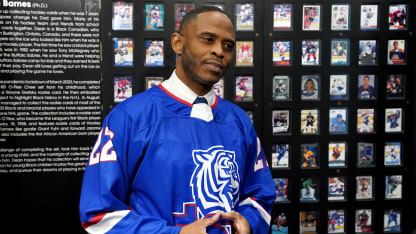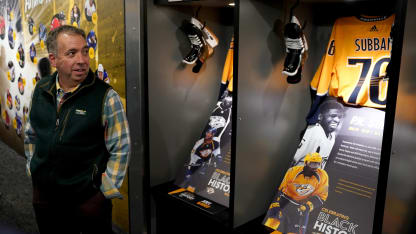NASHVILLE -- The NHL Black Hockey History Tour made history itself Friday at Tennessee State University.
The stop marked the first time the 525-square-foot mobile museum that celebrates Black achievement in hockey visited a historically Black college campus in the United States.
And not just any historically black college or university (HBCU). Tennessee State is considering whether to become the first HBCU in the nation to establish NCAA Division I men's and women's hockey programs.
The museum's visit, part of the 2022 Navy Federal Credit Union NHL Stadium Series activities leading to the game between the Tampa Bay Lightning and Nashville Predators at Nissan Stadium on Saturday (7:30 p.m. ET; TNT, SN360, TVAS2), gave students, faculty and administrators a glimpse of hockey's past and spurred hopes for the sport's future on campus.
"As I walk through and you look at all the trailblazers and pioneers that have really had an impact and growing the game and fighting for diversity in hockey, it's amazing to see," said Mikki Allen, Tennessee State's director of athletics. "First, you've got to know where the game's been to know where it's going. Our initiative here wanting to bring a Division I hockey program to an HBCU and, for that matter, to the great state of Tennessee, we could be a part of that history, and that's pretty significant."



















